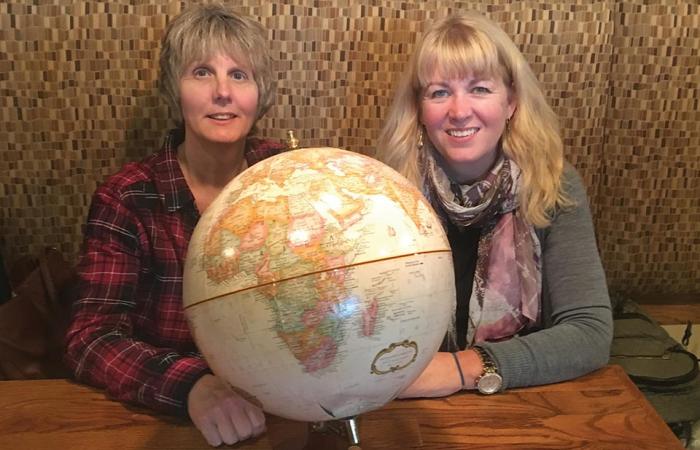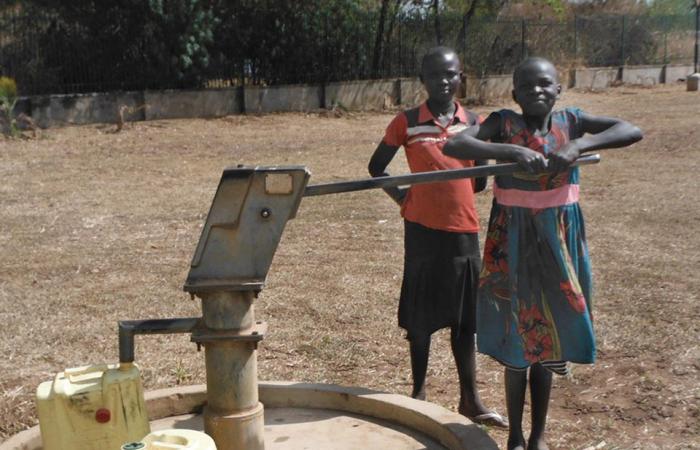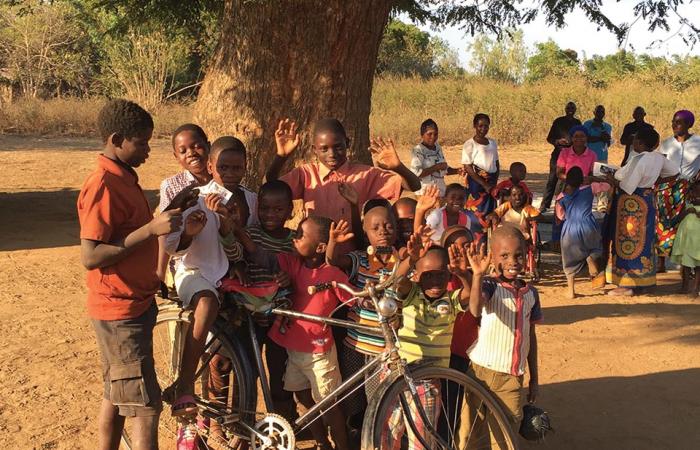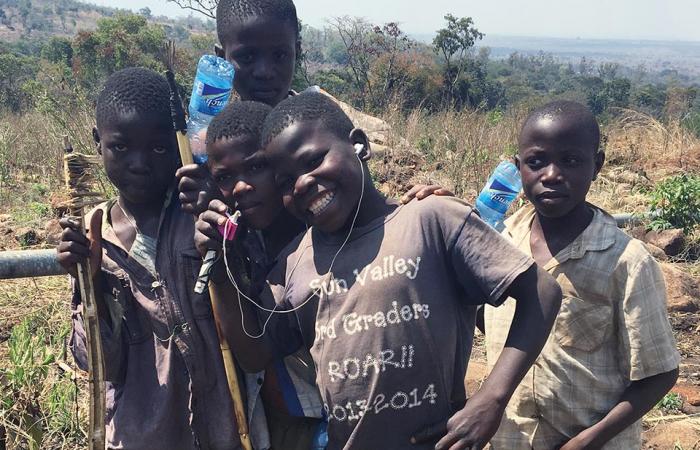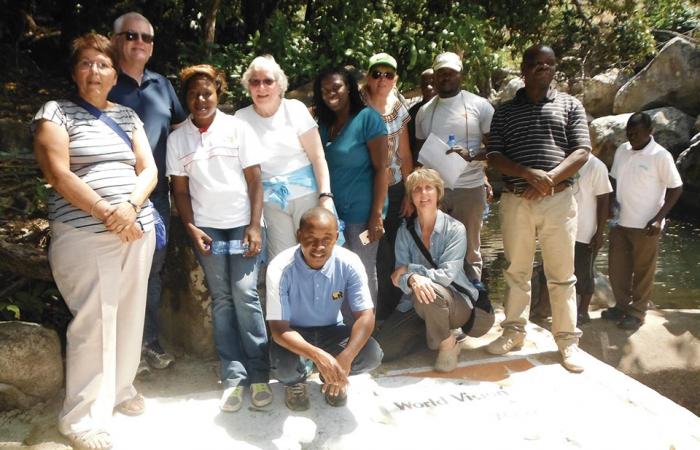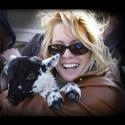Christmas in Northwestern Ontario sparks images of crackling fires, snow-covered evergreens, presents wrapped in colourful paper. But for World Vision volunteers Marguerite Tiller and Donna White, a trip to Africa changed their concept of giving, and receiving gifts will never be the same.
I joined Tiller and White in a local coffee shop to glean some of their story. They traveled this summer to the southeastern African country of Malawi, currently ranked as the fifth poorest country in the world. Both women are long-time volunteers with WV, so when an opportunity came up to observe some of the organization’s projects first-hand, they jumped at the chance. What they found was life-changing.
“We complain about the amount of rain this summer,” says Tiller with a wry grin. “But imagine having to wake up at 1:00 am and walk for hours over rocky terrain in the dark just to fetch enough water for breakfast? We take water for granted.”
Tiller and White were able to see a dam that World Vision built atop a regional mountain, along with 150kms of pipe and drains. That dam now brings fresh, running water to over two hundred communities, saving time and saving lives.
“Sometimes children would be the ones fetching the water,” says White. “And sometimes the children never came back. This dam has changed the lives of so many people.”
And that’s just one of the projects the women were introduced to. From microloans to community nutrition, all projects start and end with the communities themselves. Directors, ground workers, drivers and tradespeople – almost all WV staff are local to their respective villages and most have been university educated in their fields. Each job is carried out with remarkable pride, thoroughness and an eye to project sustainability.
“World Vision is not there as a ‘fixer,’” says Tiller. “They’re there as a ‘facilitator.’ They don’t push any agenda. People of all faiths work side by side to implement social programs and make a difference.”
It was the first WV for Tiller, but the fifth for White and the women happily admit that it wasn’t all hard work and commitment.
“Everyone was so welcoming in the villages,” says White. “We were always greeted by singing and dancing, and we joined in too. We’d walk to the markets in the evenings. Sure, I bought some touristy things – carvings, sashes, cardamom seeds, but we were especially honoured when we were given the chitenje (an elaborate hip-wrap with symbolic importance.)”
“We ate the local food,” says Tiller. “Including the chicken. They had two types – home raised and store
bought.”
“Home raised was called ‘Athletic Chicken’,” says White with a laugh. “It was like eating a tire.” The women even brought home dried grasshoppers – a staple in some Malawian homes, as are roasted mice.
“Mice are staples for the ‘thin times’,” says Tiller. “Mice, grasshoppers and birds, all on a stick.”
As I sit with these women in a coffee shop, I think about my Christmas turkey, the stuffing and the vegetables, the sweets and the desserts and candy by the barrel. I ask the women what was the one thing they brought home that wasn’t a ‘thing.’
“Mindfulness,” says Tiller. “I think this sort of experience just gives you a new perspective on the things that are truly important. We saw abject poverty and incredible joy. How can that be? Here, we have such abundance but so many are so miserable. Doing something like this is a life changer.”
White agrees. “As a teacher, I take a lot of these lessons into the classroom. When I hear kids complaining, out comes a lesson about Bangladesh or Malawi or Uganda and they listen. Usually, they are like, thank you for that. I think that through trips like this, I’ve learned how to help, how to really give, but it’s always with these contradicting emotions. Joy and sadness, heartbroken and uplifted.”
“Bittersweet,” says Tiller, and White nods thoughtfully. “Bittersweet.” At the approach of this Christmas season, I ask these bold, brave women what is one of the most effective ways to give, and they both answered in unison. “Sponsor a child.”
“It doesn’t have to be World Vision,” says Tiller, who currently sponsors seven children and dreams of sponsoring ten. “But we know that if you do, the entire community benefits. It’s not just talk. We’ve seen it. We’ve seen the dams and the taps of fresh water. We’ve seen the families where two goats lead to five, which leads to income to educate their children. We’ve seen girls dream of being doctors and nurses. You can build a house for $120! Sponsoring a child goes a long, long way!”
“And it doesn’t have to be Malawi,” says White. “It can be Bangladesh. It can be Uganda or Nicaragua or anywhere. The World Vision Gift Catalogue is awesome. You can buy a gift for someone in Thunder Bay and the benefits will be felt a world away.”
That kind of giving warms the heart more than any crackling fire, is purer than any snow-covered evergreen and is infinitely more colourful than a roomful of wrapped presents. And most of all, it embodies the true spirit of Christmas. White and Tiller are just living it all year long.
For more information on the programs of World Vision, visit www.worldvision.ca.
To follow the journeys of White and Tiller, check out www.donnawhitebooks.ca and www.margueritesmalawitrip.wordpress.com.

